QuestionHi I'm wondering if you know anything about african grays? If so I am hoping you can anwser these questions for me..........
How old should a gray be when they are bought? What is the best age for teaching tricks and speech leasons?
How big must the cage be? And how offen is it reccomened that they be let out to play?
AnswerHello. Thanks for posting your questions. Any pet parrot should be purchased as soon as possible after it is weaned from handfeeding. For an African Grey, this would be about 2 months of age, depending on the bird. For teaching tricks and how to talk, it depends on the individual bird. You can start teaching birds very early, but don't expect too much from them too early. Each bird is different and learns at it's own pace. Also, you must ensure you know how to teach them. Birds often get confused by their human's mistakes during the teaching process. A bird will do exactly what it is taught by it's owner, so if a bird ends up doing something wrong or that you don't like, chances are you (or someone else close to the bird [even the TV or radio] taught it to do that undesirable thing! However, sometimes with very intelligent birds, like African Greys, I believe they are able to think for themselves/draw conclusions, etc., based on what they've learned. You could start right away teaching tricks, but youngsters often times are clumbsy, curious, attention span is short, detracted by things going on around them, etc. During the teaching process, when you find you've lost the bird's attention and can't get it back, stop the class and resume again later. For teaching to talk, birds mimic what they think they hear. This goes for good and bad words, so be cautious! You may not know for many months if your bird has learned to speak or s/he may speak out loud right away. For example, I've had some amazons that I never knew could speak until I left a tape recorder in their room one day. And was I surprised when I listened to that tape! It seems some birds won't talk when their human is around, but as soon as they leave, the don't shut up! When I've gone on business trips, my bird caretaker tells me how much she enjoys hearing the birds talk...ones I never knew did! One other thing, birds repeat things at a faster rate than we do. So when listening to what your bird is saying, slow it down some in your mind to help you figure out what the words might be. When teaching, teach hard consonant-containing words first and speak slower than normal to help the words come out better when the bird repeats them.
If you own a Grey, you are going to have to spend a lot of time with this bird because of their intelligence. This means you should keep this bird outside of it's cage as much as possible doing things with you. Of course, there must be private time for yourself and the Grey, which should be part of the normal daily routine. This means the Grey could use a play stand or gym or nap/spend time inside it's cage...this is something you are going to have to determine. Whatever you do, decide in advance what the routine will be (what the boundaries will be between your bird, yourself, your home, your routine, etc.) and stick to it. You can't teach a bird something one day, then expect it to relearn it the next and so on. Birds can become confused, frustrated, etc., and then plucking starts or they stress out or have behavior problems. The smarter the bird, the more critical this part is.
For big birds, I recommend big cages. They will spend time inside their cage so there must be enough room for their feed and water dishes, toys, etc., and for them to flap their wings vigorously without touching any part of the cage. They need room to play and move around when they are inside their cages so they don't get injured and so they can do what they need to do. And the cage wire has to be able to withstand the bird's strong beak and must be escape proof if you don't want the bird out when you put him inside.
If you have any more questions, please come back.
Chrys

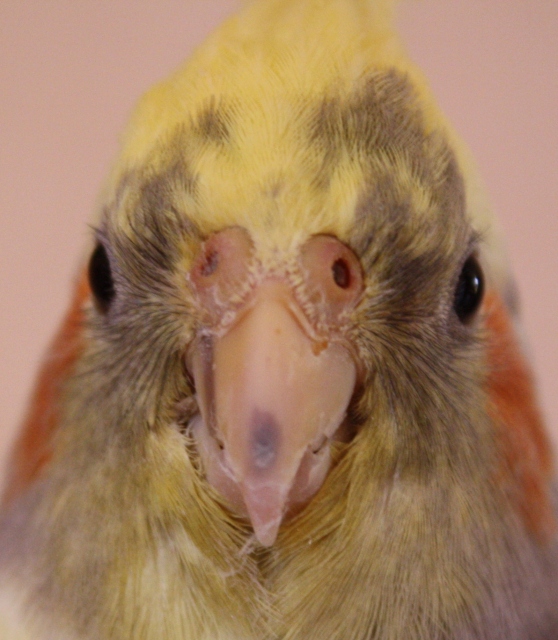 Bruise-like discoloration of beak (Cockatiel)
QuestionSasha
QUESTION: Our Cockatiel has develo
Bruise-like discoloration of beak (Cockatiel)
QuestionSasha
QUESTION: Our Cockatiel has develo
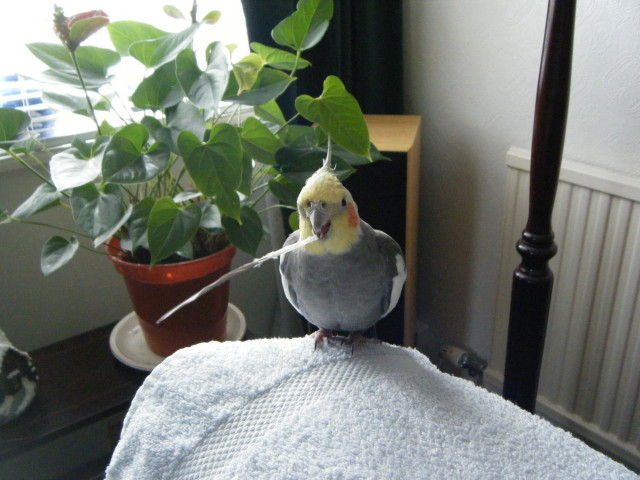 boris the cockatiel
Question
boris
Hello , I have a male cockatiel called b
boris the cockatiel
Question
boris
Hello , I have a male cockatiel called b
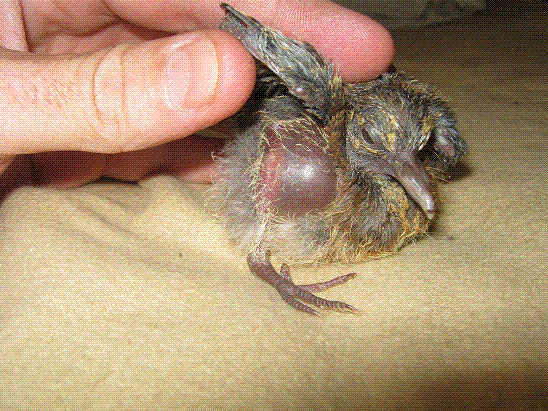 Baby Pigeon
Question
Cosmo
Hi Roger
We picked up a baby pigeon, ap
Baby Pigeon
Question
Cosmo
Hi Roger
We picked up a baby pigeon, ap
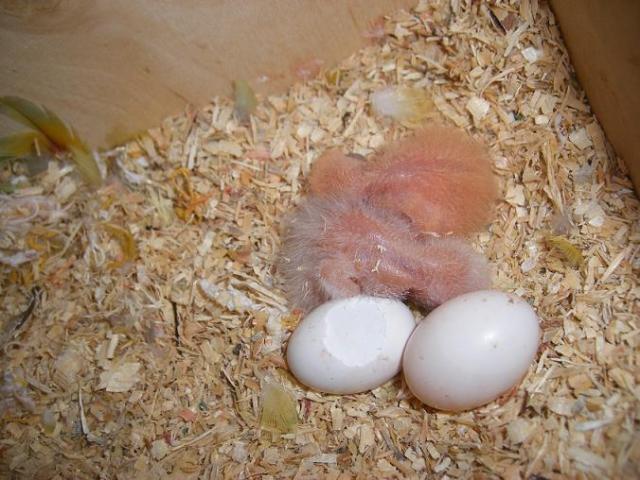 Eggs! :(
QuestionBroken Egg
QUESTION: I understand lovebi
Eggs! :(
QuestionBroken Egg
QUESTION: I understand lovebi
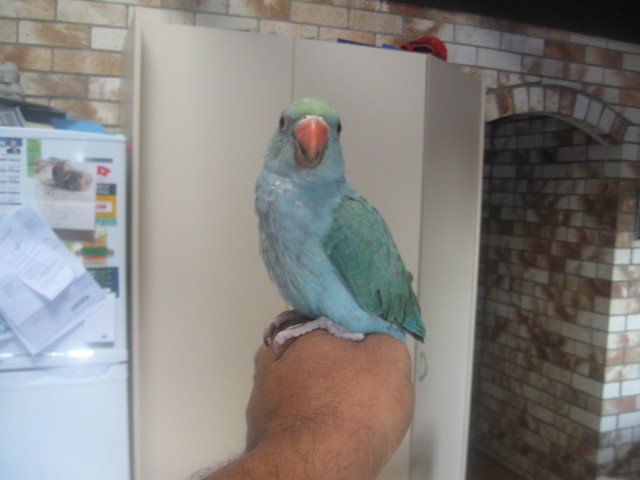 Color of my indian ringneck
Question
Boots
I have an eleven week old male ringneck
Color of my indian ringneck
Question
Boots
I have an eleven week old male ringneck